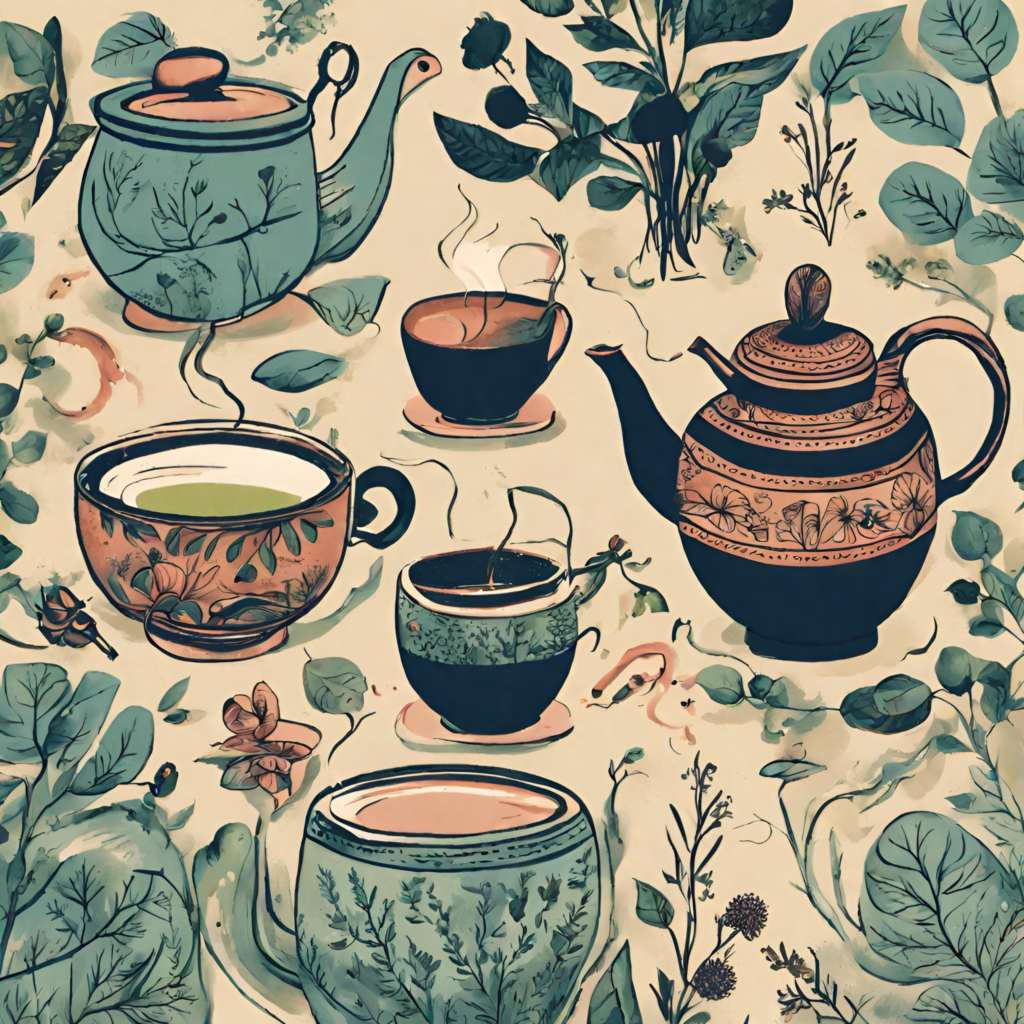Incorporating herbal teas into your daily routine can offer a transformative experience, particularly in the realm of relaxation and nap enhancement. For centuries, various cultures have embraced the natural soothing properties of herbal teas not only for their medicinal benefits but also as a key component of relaxing herbal tea routines for better sleep. This article delves into how these revered brews can serve as an effective pre-nap ritual, providing calming herbal tea practices pre-nap to soothe the mind and prepare the body for restful sleep.
Unlocking the Power of Herbal Tea Relaxation Rituals
The gentle, natural compounds found in herbal teas offer a serene escape, making them beneficial for stress reduction and relaxation. Unlike their caffeinated counterparts, herbal teas are known for ingredients that soothe rather than stimulate. Engaging in herbal tea relaxation rituals taps into these properties, with compounds that have a mild sedative effect or help balance stress hormones, fostering a sense of well-being and tranquility.
Popular Herbal Teas for Enhancing Nap Quality
Several herbal teas stand out for their relaxation benefits, each offering unique properties that can be integrated into natural relaxation with pre-nap herbal teas:
- Chamomile: Perhaps the most renowned among soothing herbal teas for napping, chamomile tea contains apigenin, an antioxidant that promotes sleepiness and may reduce insomnia.
- Lavender: Lavender tea, with its aromatic and soothing scent, is perfect for reducing stress and anxiety. It’s an excellent choice for a pre-nap beverage, setting the stage for a peaceful sleep.
- Lemon Balm: Celebrated for mood enhancement and inducing calm, lemon balm tea is a great addition to enhancing nap quality with herbal brews.
- Valerian Root: Often dubbed as nature’s valium, valerian root tea is known for its sleep-inducing and anxiety-reducing properties, making it a popular choice for improving nap quality.
- Peppermint: While known for digestive benefits, peppermint also possesses relaxing properties that can help ease tension and foster a peaceful state of mind.
Each of these teas contributes to creating the perfect environment for restful napping, highlighting the benefits of natural relaxation with pre-nap herbal teas.

Crafting the Perfect Pre-Nap Tea Ritual
Creating a tea ritual before napping can significantly elevate the relaxation experience. Here’s how to craft an effective herbal tea relaxation ritual:
- Choose Your Tea: Select a herbal tea that resonates with your personal taste and relaxation needs, focusing on flavors and scents that you find soothing.
- Brewing Your Tea: Prepare your tea according to the recommended guidelines, steeping it in hot water to extract the flavors and beneficial compounds, integral to relaxing herbal tea routines for better sleep.
- Setting the Ambiance: Craft a serene environment for your tea ritual. Find a tranquil space where you can unwind, possibly with dim lights and soft music, enhancing the soothing herbal teas for napping.
- Mindful Drinking: As you sip your tea, immerse yourself in the experience. Notice the aroma, feel the warmth of the cup, savor the taste, and observe its effects on your body and mind. This mindfulness aspect is key in calming herbal tea practices pre-nap.
Personalizing Your Herbal Tea Experience
The beauty of a pre-nap tea ritual is its adaptability. Since relaxation needs and taste preferences vary, experimenting with various herbal teas is crucial in finding your ideal pre-nap brew. Some may prefer the floral notes of lavender for deep relaxation, while others might find peppermint’s freshness more conducive to easing into a relaxed state. Mixing and matching herbs or adding ingredients like honey or lemon can further personalize your tea, making it an integral part of enhancing nap quality with herbal brews.
The Benefits of a Pre-Nap Tea Ritual
Adopting a pre-nap tea ritual can bring a multitude of benefits. The natural compounds in herbal teas are key to soothing the nervous system, thereby reducing stress and anxiety levels, which are crucial for a quality nap. Many herbal teas have properties that can enhance the quality of sleep, helping you to fall asleep faster and enjoy a deeper, more restful nap. The act of preparing and savoring a cup of tea itself can be a mindful practice, forming a significant part of relaxation techniques with herbal teas. This ritualistic aspect not only prepares your body for rest but also signals your mind that it’s time to unwind and take a break.
Combining Herbal Teas with Other Relaxation Techniques
For an even more enhanced napping experience, consider pairing your herbal tea ritual with other relaxation methods. Engaging in light stretching or yoga can release physical tension, while practicing deep breathing or meditation while enjoying your tea can deepen the sense of relaxation and readiness for sleep. These combinations epitomize the essence of enhancing nap quality with herbal brews.

Addressing Common Questions and Safety Considerations
While herbal teas are generally safe and beneficial, it’s important to consider a few things for optimal relaxation and napping with acupressure:
- Caffeine Content: Ensure that your chosen herbal tea is caffeine-free to avoid any sleep disruption.
- Potential Interactions: Be mindful of any interactions with medications or specific health conditions. Consulting with a healthcare provider is advisable if you have any concerns.
- Allergies: Be aware of any personal allergies to specific herbs and avoid teas that contain those ingredients.
Conclusion: Embracing Herbal Teas for Enhanced Relaxation and Napping
Incorporating herbal teas into your pre-nap routine can transform your relaxation and napping experience. Whether it’s the calming allure of chamomile or the soothing essence of lavender, these natural brews provide a simple yet profound way to ease into restful slumber. Personalizing your tea choice and creating a ritual around it can significantly enhance your relaxation and nap quality, making it a rejuvenating practice.
FAQs: Maximizing the Benefits of Herbal Teas for Napping
To enhance your understanding of using herbal teas for relaxation, here are answers to some common questions:
Drinking your herbal tea about 30 minutes before napping is recommended, allowing the herbs to exert their calming effects.
Some herbal teas may not be recommended during pregnancy or breastfeeding. Consulting with a healthcare provider before adding new herbs to your diet is best during these times.
Most herbal teas used for relaxation have gentle effects and are unlikely to cause grogginess. However, individual reactions can vary.

